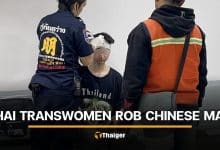Pattaya pandemonium: Residents clash with illegal migrant influx

In the bustling streets of Pattaya, a storm brews as residents raise their voices against the encroaching presence of illegal migrant workers. They decry the theft of Thai people’s livelihoods and the nuisance inflicted upon tourists by these unauthorised labourers.
Voicing their grievances to the local press, residents unveil a troubling narrative. Foreign women, predominantly hailing from Laos, Cambodia, and Myanmar, are spotted peddling wares to unsuspecting tourists, particularly at popular spots like Walking Street. Armed with infants and toddlers, these women exploit sympathy to bolster their sales pitches, leaving a bitter taste in the mouths of those who refuse their offerings.
But it doesn’t end there. Illegal foreign vendors, armed with mobile carts and tricycle stalls, further exacerbate the situation, unfairly competing with law-abiding Thai merchants who dutifully contribute to the economy.
As tempers flare, aggrieved residents call upon the authorities to intervene swiftly and decisively, reported Pattaya News.
They fear that beyond the economic repercussions, these migrant workers may be entangled in the sinister web of human trafficking, casting a shadow of doubt over the true guardianship of the children in their midst.
In related news, Thai immigration officers cracked down on immigrant workers allegedly encroaching on local professions in Bangkok’s bustling Ratchathewi district.
Thai immigration officers, alongside immigration police and Phaya Thai police, have disclosed a meticulously planned operation aimed at eliminating immigrant workers accused of infringing upon the livelihoods of Thai locals without proper authorisation.
In other news, the Thai government has exposed a secret workforce of over 700 foreign workers engaged in professions reserved for locals over the past six months, officials declared on March 21.
Government spokesperson Kharom Polpornklang disclosed that a vigorous crackdown by the Employment Department had ensnared 721 foreigners, predominantly employed as street vendors, hairdressers, drivers, and masseurs, prompted by grievances from indigenous workers.
Latest Thailand News
Follow The Thaiger on Google News:


























